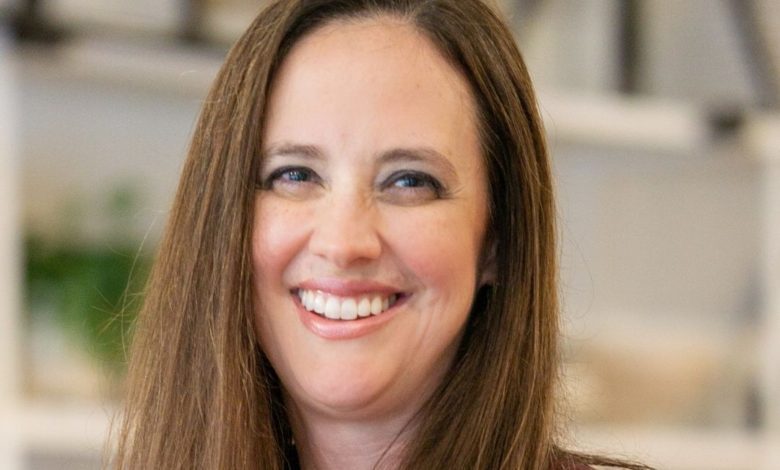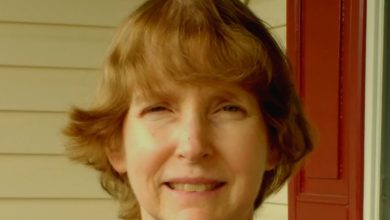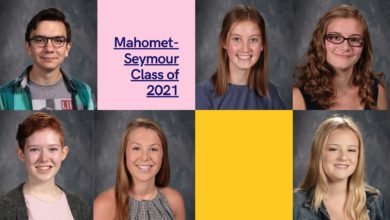Opportunity for Millenials to hear Jolene Erlacher in Mahomet to come at end of March

By Fred Kroner
By FRED KRONER
As Jolene Erlacher lives her daily life, she is also acutely aware of the future.
A person who is equal parts wife, mother to twin daughters, teacher, author, consultant and lecturer, Erlacher is concerned about the future, especially for those who fall into the category of Gen Z, which is loosely defined as those born between 1996 and 2012.
Today’s young people are tomorrow’s leaders.
It’s that topic that will bring Erlacher to Mahomet in late March for two speaking engagements – both without charge – with hopes that she can shed some light on strategies for connecting with Gen Z and helping to equip them for the years ahead.
She will speak from 6:30-7:45 p.m. on Sunday, March 27 at the First Baptist Church, in Mahomet with a presentation directed to parents of teen-agers and college students.
On Monday (March 28), she will speak from 6:30-7:45 p.m. at the Mahomet Public Library with a talk geared more for teachers and leaders of teen-agers and college students.
An author of two books – with a third to be published by fall – Erlacher is a Wisconsin native who now resides with her family in Raleigh, N.C.
She has researched generational trends, and travels several times a month to speak, share her experiences and help those in the audience gain insight.
Her talks are non-denominational and focus on education as well as ministry.
The Internet itself is not the culprit, but plays a role in the attitudes of today’s young people.
“Everyone has influence and information today,” Erlacher said. “Because they have access to information, they feel empowered and don’t feel a need for teachers or bosses.
“They need teachers and leaders to help them with interpretation of the information. It’s more uploading information than downloading.”
For parents, there is no longer a tried-and-true formula.
“It’s more like building the bridge as we walk on it,” Erlacher said. “We are navigating dynamics that never existed before because devices (such as cell phones and laptops) are available 24/7.
“Young people’s brains on technology looks like someone addicted to drugs or alcohol.”
Along with the increased impact of social media, Erlacher said there is a decrease among young people in church attendance and participation.
She cited statistics from research provided by the Barna Group (from Ventura, Cal.) that shows as many as 60 percent of the youth raised in a church environment leave the church as young adults.
“We’re seeing a change in cultures and values,” said Erlacher, who founded Leading Tomorrow in 2014. “Some young people now don’t understand the relevance of faith.
“They get it virtually online rather than (in person) from a pastor.”
The ramifications, Erlacher said, can be quantified.
“What we find is that Gen Z is the loneliest generation,” she said. “There are a lot of mental health problems because they are not connecting with people in person.
“Going to church creates a community, a place to process, and a belief system. Many kids don’t know what is meaningful and what is true.”
Even in cases where the message delivered by a pastor in person is identical to what can be heard online, Erlacher said the value of each setting is not the same.
“The Internet has facilitated things that have had a negative effect on religion,” Erlacher said. “It has replaced the ‘felt’ need for that community.
“The virtual community is superficial and doesn’t offer the emotional corner. We still need the face-to-face communication that makes us feel like we are connecting with people.”
Unlike the majority of the younger generation who now depart from the church, Erlacher was raised by parents who were missionaries and has maintained her participation in church and its associated activities.
The key factor for her is supported by statistical data.
“Research shows the No. 1 predictive factor (for church retention) is to have a meaningful relationship with an older person of faith,” Erlacher said. “I had wonderful role models and had the opportunity to serve in the church.
“The other piece is do young people experience faith as something that is real? If so, that experience helps.”
Though Erlacher continues to attend church regularly, she is aware of what is transpiring in the world around her.
“The culture has changed from the modern world to the post-modern world,” she said. “People are questioning all of the narratives of the past.
“People today think what is moral depends on the situation and question whether church is relevant in their life.”
The blame for the issues the younger generation are dealing with are not part of a one-way street.
“Churches are not answering the questions young people are asking,” Erlacher said. “They want information that is relative to them right in the moment.
“Churches are not communicating to their immediate situation in life.”
Also changing is the amount of people who leave the church for a period of time, but then return.
“It’s drastically different,” Erlacher said. “Before, young adults might walk away, but come back when they were married and having kids.
“That trend is not true with millennials and Gen Z. People are waiting longer to get married.”
Erlacher’s passion was sparked as she attended and later worked for eight years at North Central University (in Minneapolis).
“I watched young people, motivated young people, come in,” she said. “Some were in ministry. Some were in business or education.
“They studied hard, graduated, and then struggled with the transition to the work force afterwards.
“That opened my eyes to the generational trends. I needed to figure a way to help young people transition.”
As COVID mitigations are being lifted, the demands on Erlacher’s time are increasing.
She had two speaking engagements the first week of March. The process often starts with a person or a group hearing her address a conference and then sharing about the experience when they return to their hometowns.
“They may feel that people in their community can benefit from hearing this,” Erlacher said.
Bruce Swartz has served as one of the points of contact to get Erlacher arranged to speak in Mahomet.
For those interested in signing up to listen to Erlacher, contact Michelle at First Baptist Church, 217-586-3304.



